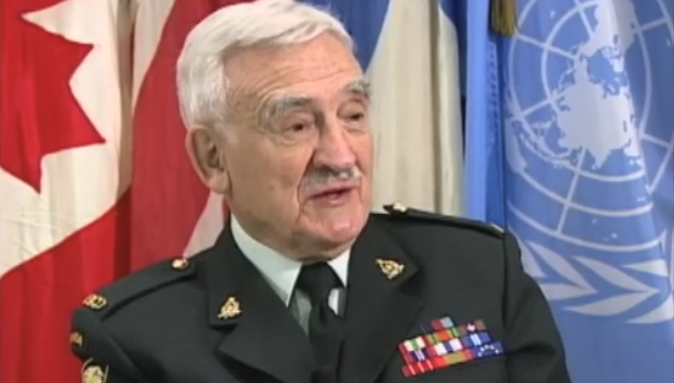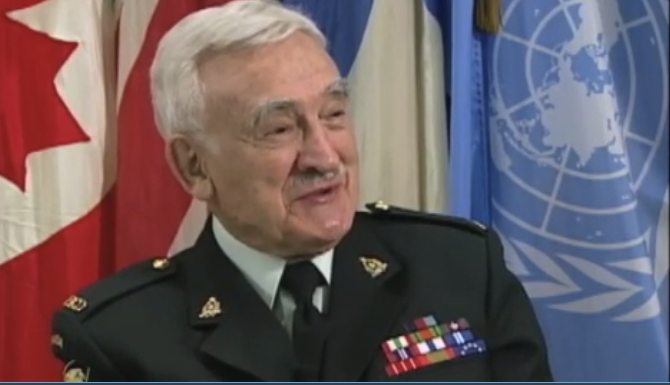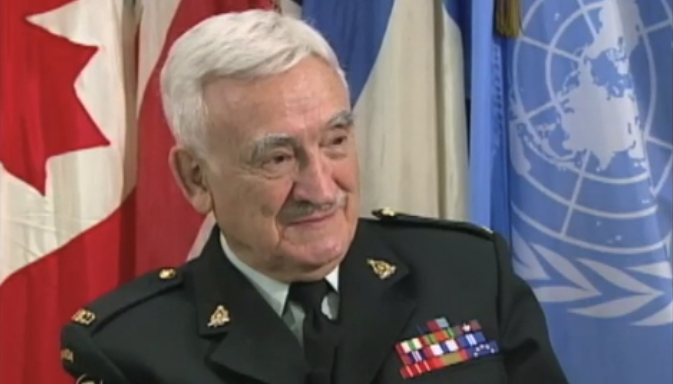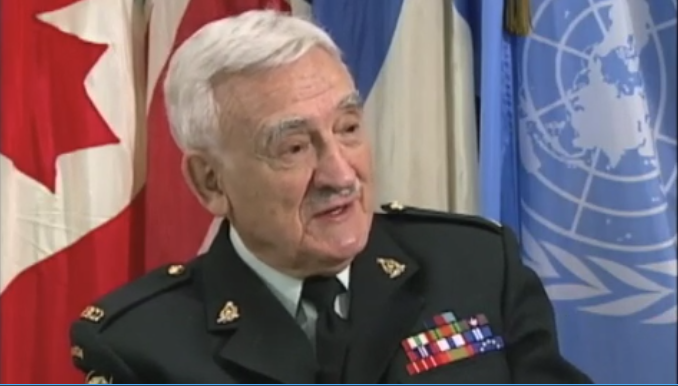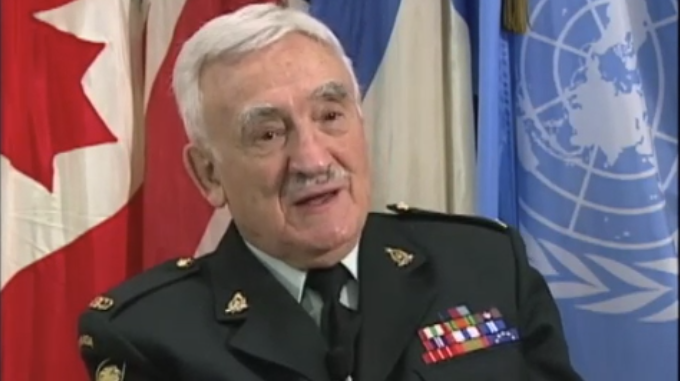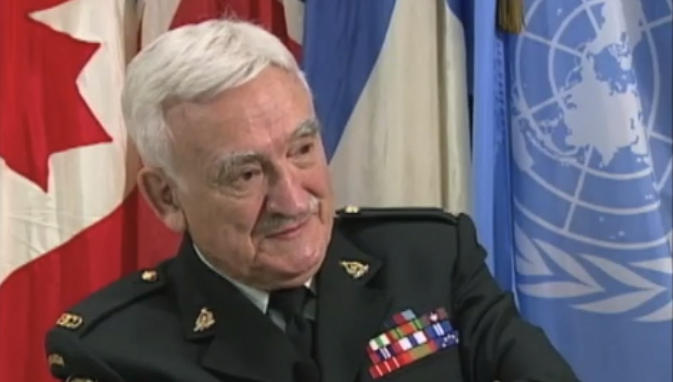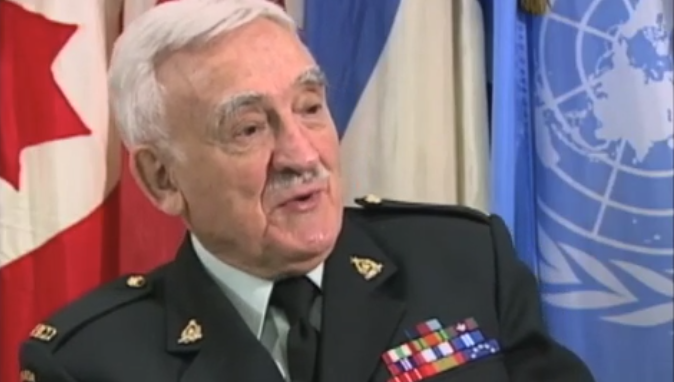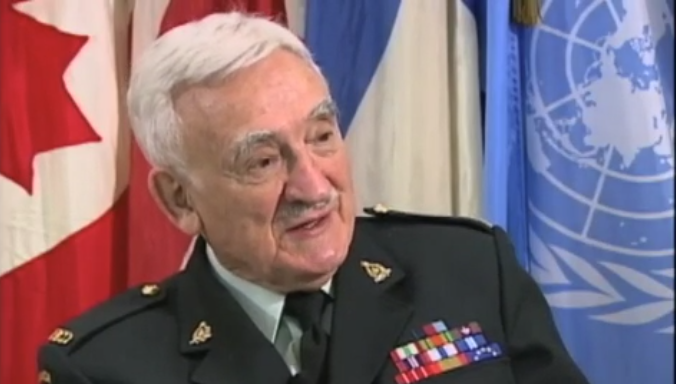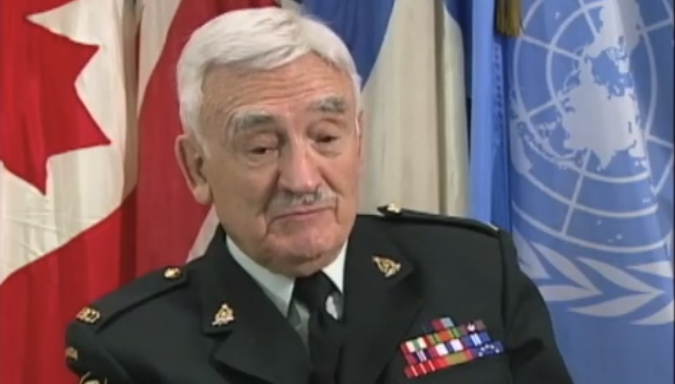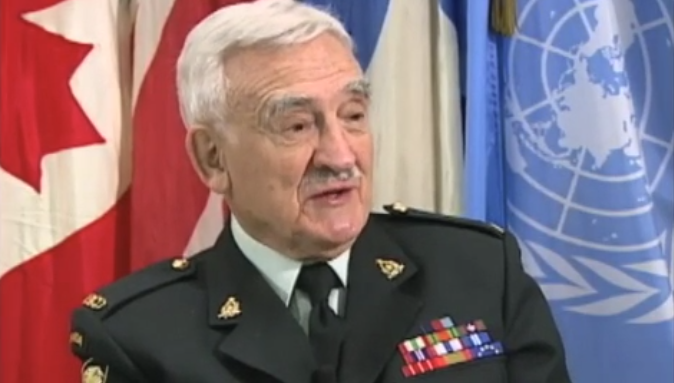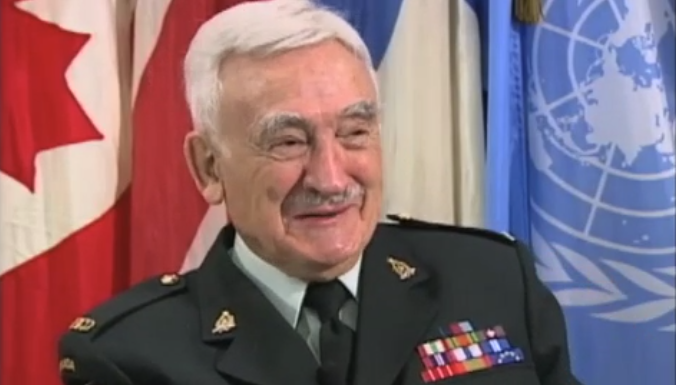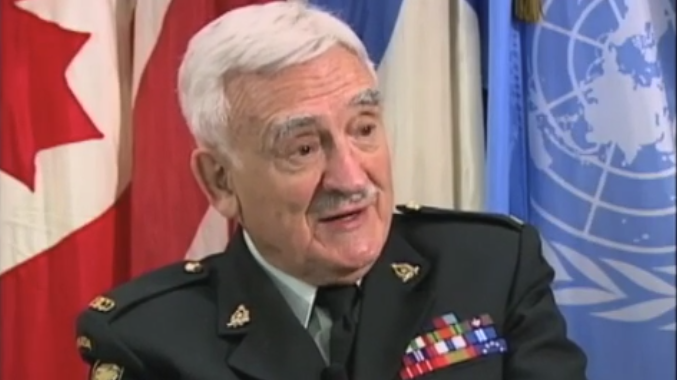Interviewer: Your war or your campaign came to
an abrupt halt on the outskirts of Rome.
Could you describe that to me, sir?
We were on this last drive and
doing very nicely.
We were going up this valley.
Highway 6, the main highway, was our right
boundary and these mountains were there
with Frosinone and Rofi, Pofi and Ripi,
all these Italian towns.
And again, they had the high ground
again and we were running up
where they could see us.
The shell fire was coming in like mad,
but that was pretty normal.
And we had infantry with us that day.
We had learned a lot.
We learned to keep the infantry
very close to us.
We could protect them from machine guns and
they could protect us from people coming
with anti-tank weapons, you know,
hand-held ones 30 yards away taking us out.
So, we needed each other and we were moving,
I think it was the Westminster Regiment,
no, it was the Irish Regiment who were with us.
And we ran across the stream and
we called for a scissors bridge.
I presume you know what a scissors bridge is?
Interviewer: Well, explain it to me.
A scissors bridge is a tank that has a folded
bridge on top of it and it goes up the water
and it unfolds the bridge and it puts it over
so you can get across.
We were at this river, and it was always rivers.
Every five or six miles, another river.
We kept calling for a scissors bridge and
it had broken down and we couldn't get
one and Colonel Vokes was screaming and
hollering, “Move! Move! Move!”
And I was cleaning up his language and
passing it along Colonel Kin... to
Major Kinlock, later Colonel Kinlock,
who was my CO. And he was saying,
“There's a river there! Where's the bridge?”
After about an hour of this, he said to me,
“Where's the infantry?”
I said, “They're all dug in.
Look at the shells coming in.
They're in slit trenches.” He said,
“Well, get them out and tell them to go
down to the river and walk the river.
Maybe there's some place in the river
that's only two or three feet deep we can
get across without a bridge.”
I wasn't too happy about getting out of
the tank with all those shells coming in,
but I got out of the tank and
interestingly enough, not important to
the war but important to me,
as I was going looking for the infantry,
an ambulance Jeep came up
to me and the sergeant in it said,
“Is there anything wrong with your communications?”
I said, “Not that I know of. Why?” He said,
“Well, you've been in action for six hours and
you haven't called for us yet,
which was quite unusual.”
I though for a moment, I said,
“Yes, very unusual, but it's not the wireless.
Our luck can't continue.
You better stick around; we'll need you.”
And I went on and I found the lieutenant
of the infantry and I told him what
I wanted, to get out of the trench and
get down to the river and walk it and
try and find a shallow place.
As a matter of fact, in the end, he did.
And on my way back to my tank,
I went over to Davie's tank, Kinlock's tank,
and I climbed up on the back and told him,
“There they are. They're going.”
And what had happened and I climbed
off and was going back to my tank,
which was maybe eighty yards away,
seventy yards away and an 88 mm shell
landed right beside me.
They were, that was a big gun.
That was the ack-ack gun they were
using and it blew me through the air,
I'm told, about forty feet.
Riddled me with shrapnel,
tore my leg apart, and I was lying on
the field bleeding to death.
Then this ambulance Jeep came,
stopped the bleeding,
gave me an immediate transfusion,
got me into an ambulance,
and got me out of there.
If they hadn't been there,
I would have bled to death on the field.
And that was the end of my war.
Mind you, my crew came to see me in
the hospital a week later, when I was
still in bad shape and they said,
“You're pretty lucky.” And I said,
“What makes you think I was lucky?”
They said, “Well, after you were wounded,
your tank didn't have a crew commander,”
they said, “And Captain Carsley of the 8th Self
Propelled Regiment, his tank broke down.
He was the FO, he was up with us
giving us supporting fire.
So they gave him your tank because
you were gone and then 45 minutes later
an AP shell took his head off.”
He said, “So, you were ahead of the game.”
I guess I was!
Interviewer: From that hospital,
where did you go next?
Well, I was in bad shape.
I wasn't fit to travel so they kept me there
for about two and a half months until I
was fit to travel.
And then they shipped me back to England
on a South African hospital ship and
I was there in time to enjoy the buzz
bombs for about five weeks.
And, then I got on the Lady Nelson
and came home.
That was the end of my war.



